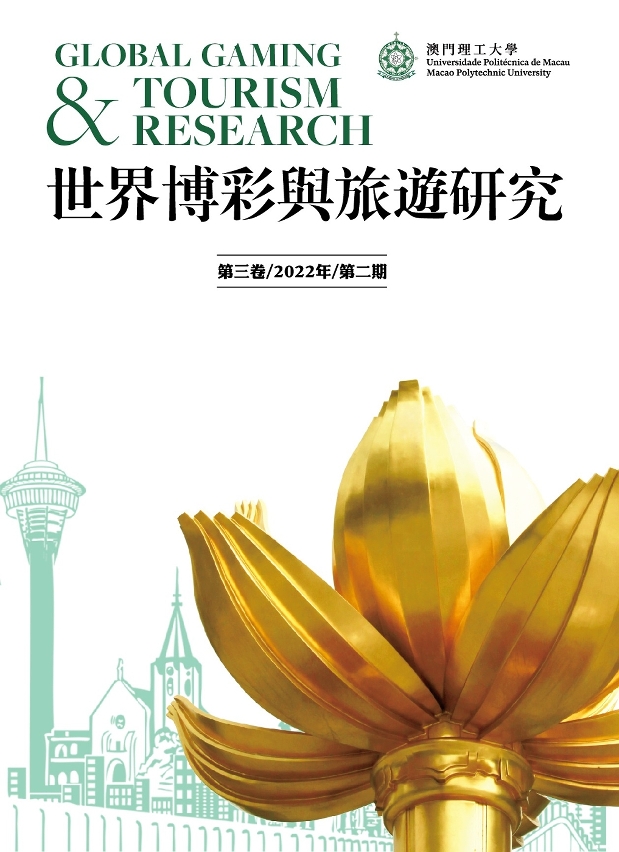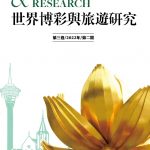 Global Gaming & Tourism Research (The Second Issue of 2022) by MPU
Global Gaming & Tourism Research (The Second Issue of 2022) by MPU
Macao Polytechnic University (MPU) has published the second 2022 issue of Global Gaming & Tourism Research (a total of 6 issues). This current issue of the journal covers academic papers regarding gaming and tourism. The purpose is to promote the sustainable development of the gaming and tourism industry, provide support for the scientific decision-making of the SAR government and gaming enterprises, and build a communication platform for gaming and tourism research.
In the field of tourism research, Professor Yin Ping of Beijing Jiaotong University and her co-authors conducted a “Study on the Spatio-Temporal Evolution Characteristics of the Centrality of Tourism Flow Network Around Macao”. Their study analyzes the spatio-temporal evolution characteristics of tourism flows in Macao and its eight neighbouring countries and regions through five indicators: influence, centripetal force, radiation force, binding force and affinity. The results show that Macao’s eigenvector centrality decreases annually and currently has less influence in the network. “Research on the Therapeutic Experience of Tourists in the Old Town of Lijiang” is authored by Doctor Huang Qingyan at Xi’an International Studies University, Xi’an, and Professor Bai Kai at Shaanxi Normal University, Xi’an. Their study attempts to empirically investigate the interaction between the environment, therapeutic landscape, and tourist experience with a group of travellers in the Old Town of Lijiang as the research object. “A Study on the Design Perspectives of the Hotel Fitness Needs for Seniors’ Tourism Groups in China” is written by Professor Xu Guiping at Shanghai University of Engineering Science and her co-authors. Their paper believes that hotel fitness is of great significance to meet the needs of elderly travellers in China. Other articles regarding tourism research are “New Developments in the Study of Religious Tourism in China and Its Implications for Macao Tourism” written by Li Yu, and “A Review of Tourism Destination Governance and Prospects for Cross-regional Governance” written by Zhang Yihang.
“Chinese Investment in Gambling Industry in Africa” is written by Li Hangwei, Assistant Professor at China Agricultural University, Beijing. Based on fieldwork in a number of countries in Africa and interviews with relevant stakeholders and African government officials, the article analyzes the investment and operation of Chinese enterprises in the African gambling industry. “The Birth of the First Generation Casino Hotels in Las Vegas”, written by Gordon Yeh, reviews the birth of El Rancho Vegas, a game changer in the Las Vegas casino industry. The hotel was master-planned to integrate gambling, accommodation, food and beverage, entertainment and retail under one roof, which has significant reference for the development of modern integrated hotels in Macao. “Macao’s Gaming Industry and Moderate Economic Diversification: A New Structural Economics Perspective” is written by Prof. Liu Chengkun at Macao Science and Technology University. Based on the quarterly data of the gaming industry and Macao’s GDP from 2013 to 2022 as the sample, the study employs the VAR model and Granger causality test to analyze the impact of the gaming industry on Macao’s economy during the pandemic of Covid-19. Drawing on the paradigm of new structural economics, the study also analyzes the four new industries corresponding to Macao’s diversification in the Guangdong-Macao In-Depth Cooperation Zone in Hengqin. Social gaming is a prevalent entertainment in Chinese society; the social gaming activities in the “Dream of the Red Chamber” vividly illustrated the daily life of a large aristocratic family in feudal society. “On the Social Gaming Activities in the Dream of the Red Chamber”, written by Professor Liu Xiangyu at Qufu Normal University, sorts out the social gaming activities described in the novel and analyzes the positive and negative effects of social gaming in ancient China.
Global Gaming & Tourism Research is published semi-annually and covers key areas, including management and development strategies concerning gaming and tourism. The Journal welcomes contributions from experts from home and abroad. For enquiries, please contact Zeng Zhonglu (Professor of the Centre for Gaming and Tourism Studies and the Editor-in-Chief) at 8893 6229. Articles can be submitted toglobalgaming@mpu.edu.mo.


